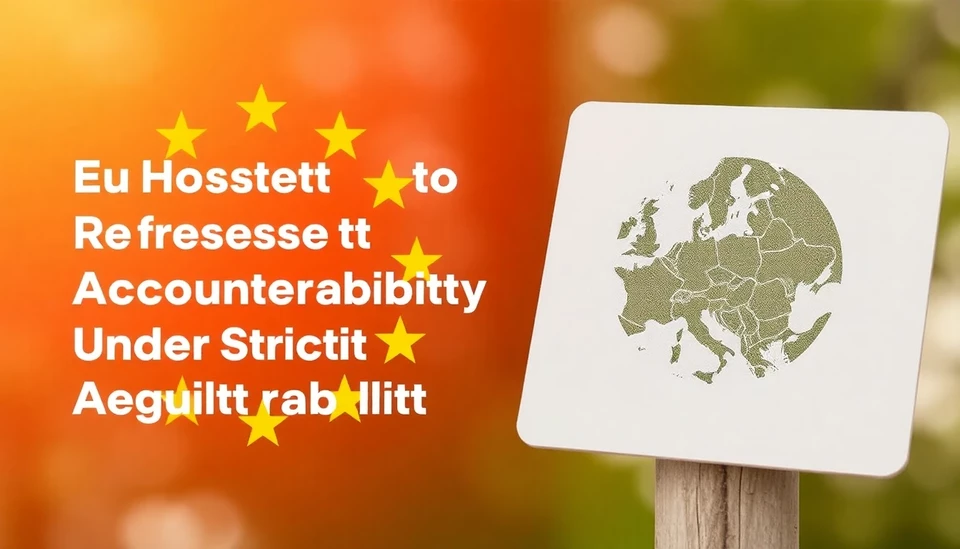
The European Union is gearing up to undertake a comprehensive review of corporate liability frameworks as it aligns with its ambitious Environmental, Social, and Governance (ESG) legislation. This evaluation is particularly crucial, given that the EU's regulations are considered the most stringent globally, aimed at ensuring businesses adhere to set sustainability standards.
In recent years, companies operating within the EU have faced increasing scrutiny regarding their environmental and social practices. The impending review is a response to growing concern over the effectiveness of current rules in holding corporations accountable for their impact on society and the environment. Many stakeholders, including policymakers, environmentalists, and corporate leaders, are keenly observing how this review will reshape the corporate landscape.
Recent reports indicate that there is mounting pressure for improved transparency and responsibility from businesses, particularly those that have faced backlash for inadequate responses to sustainability challenges. The EU's focus on restructuring corporate liability aims to establish clear accountability for ESG failures, creating a framework where companies can be prosecuted for negligent practices that harm the environment or society.
The review process is expected to engage various stakeholders, fostering an open dialogue to assess the effectiveness of existing laws and identify areas for improvement. As part of this extensive process, the EU will likely look into case studies and data from member states to understand the ramifications and efficacy of current regulations.
In addition to reevaluating corporate liability, the EU is anticipated to propose amendments that would strengthen enforcement mechanisms. This includes enhancing punitive measures for companies that fail to comply with ESG parameters and enriching support systems for whistleblowers who expose corporate negligence in environmental or social governance.
The potential ramifications of the review are significant for businesses across various sectors, particularly industries historically associated with high environmental and social risks, such as energy, manufacturing, and agriculture. Companies might need to reassess their operational practices and corporate strategies to align with heightened scrutiny and compliance expectations.
Furthermore, the EU’s commitment to stringent ESG laws underscores a broader global trend where investors and consumers are increasingly prioritizing sustainability. The corporate sector is thus urged to proactively adapt to this evolving environment, recognizing that adherence to ESG standards is not just a regulatory obligation but a strategic imperative for long-term success in the marketplace.
As the review progresses, it will be pivotal for companies to remain vigilant and responsive to the regulatory landscape, ensuring they can mitigate risks while reinforcing their commitment to sustainable practices.
The review process by the European Union signifies a critical juncture in corporate governance, offering a chance to redefine accountability and responsibility within the framework of sustainability. As this discussion unfolds, it will be interesting to see how businesses adjust to not only comply with regulatory changes but also to embrace the broader implications of ESG as a central tenet of their operational ethos.
Stay tuned for updates as the EU embarks on this significant review, shaping the future of corporate liability under the continent's leading ESG legislation.
#EU #CorporateLiability #ESG #Sustainability #Regulations #EnvironmentalGovernance #SocialGovernance #BusinessNews #CorporateResponsibility #InvestmentTrends
Author: Sophie Bennett




